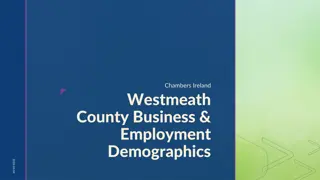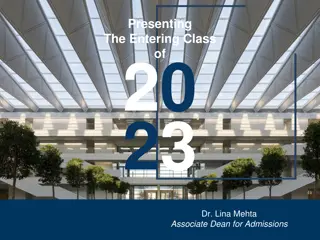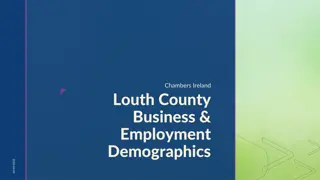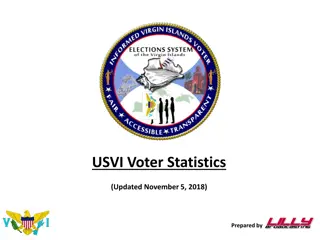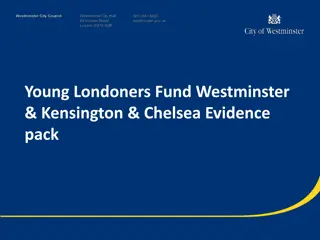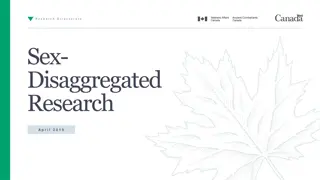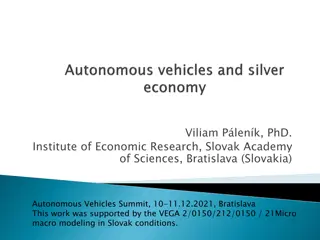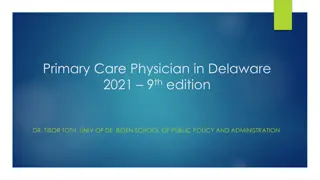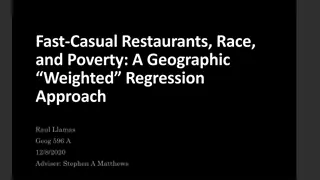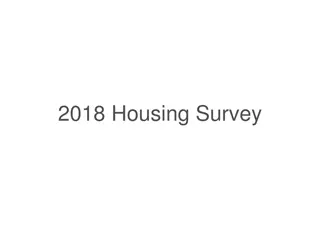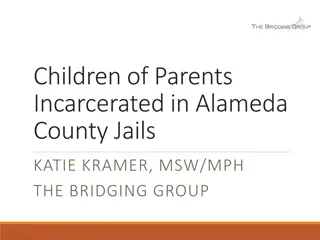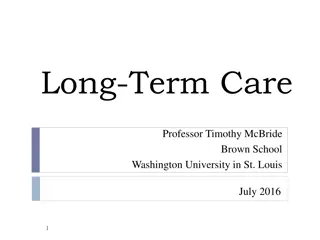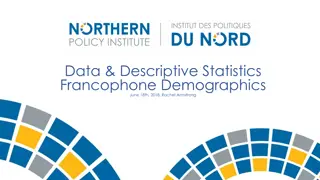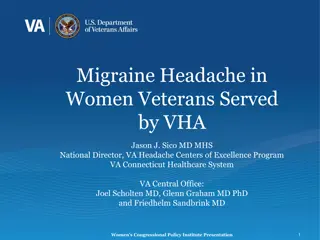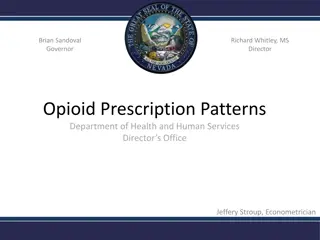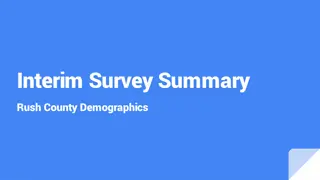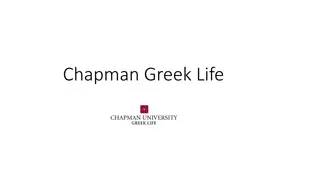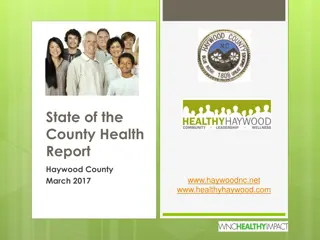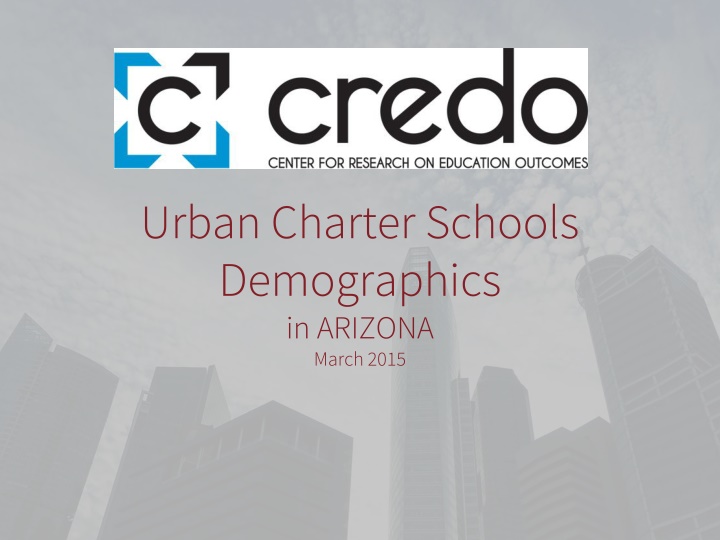
Urban Charter Schools Demographics in Arizona: Research Study Insights
Discover a research study on urban charter schools in major Arizona cities, analyzing student demographics and achievement levels compared to traditional public schools. Explore the landscape of public education in urban areas and the efforts to serve disadvantaged students.
Download Presentation

Please find below an Image/Link to download the presentation.
The content on the website is provided AS IS for your information and personal use only. It may not be sold, licensed, or shared on other websites without obtaining consent from the author. If you encounter any issues during the download, it is possible that the publisher has removed the file from their server.
You are allowed to download the files provided on this website for personal or commercial use, subject to the condition that they are used lawfully. All files are the property of their respective owners.
The content on the website is provided AS IS for your information and personal use only. It may not be sold, licensed, or shared on other websites without obtaining consent from the author.
E N D
Presentation Transcript
Urban Charter Schools Demographics in ARIZONA March 2015
Introduction The is a report on urban charter schools in major cities in Arizona Urban charter schools are at the forefront of public education and on- going efforts to create better outcomes for students. Many urban charter schools have a specific mission to target and serve students with the greatest educational disadvantages, either by virtue of family background or poor prior instruction. Others got their start as a way to deal with rapid urban growth that axed the capacities of local districts to provide buildings and staff to meet growing demand. CREDO studied the attributes of students and schools in Mesa, Phoenix & Tucson. 2
Introduction Five criteria were used to select which urban communities to study; full details are in the Technical Appendix. CREDO developed a narrow definition of urban to select schools for this study. The aim was to choose schools that were within the joint boundaries of cities and school districts. Multiple sources are used to develop boundaries for urban regions, including NCES locale codes, school addresses, and school district information. More detailed information is included in the Technical Appendix for the study. Student & School Counts are derived from student test data. 3
Research Questions This study answers the following questions: What does the urban public education landscape look in Arizona? How do the student attributes in urban charter schools differ from their traditional public school (TPS) counterparts? Does the level of achievement differ between students in charter schools and TPS in their same cities? Given the mission of some charter operators to target disadvantaged students, do we see proof they do so? 4
Overview of Public Charter Schools in ARIZONA 5
AZ Student Demographics STATEWIDE DEMOGRAPHIC TRENDSBY LOCATION ALL TPS STUDENTS TPS Students by School Type 26% 41% 10% 23% urban suburban town rural Source: National Center for Education Statistics, Core of Common Data 2011 6
AZ Student Demographics STATEWIDE DEMOGRAPHIC TRENDSBY LOCATION ALL CHARTER STUDENTS Charter Students by School Type 16% 8% 55% 21% urban suburban town rural Source: National Center for Education Statistics, Core of Common Data 2011 7
TPS Market Share Over Time STATEWIDE DEMOGRAPHIC TRENDSBY LOCATION ALL TPS STUDENTS TPS Enrollment by School Type 140,000 120,000 100,000 80,000 60,000 40,000 20,000 0 2006-07 2007-08 2008-09 2009-10 2010-11 urban suburban town rural Source: National Center for Education Statistics, Core of Common Data 2011 8
Charter Market Share Over Time STATEWIDE DEMOGRAPHIC TRENDSBY LOCATION ALL CHARTER STUDENTS Charter Enrollment by School Type 25,000 20,000 15,000 10,000 5,000 0 2006-07 2007-08 2008-09 2009-10 2010-11 urban suburban town rural Source: National Center for Education Statistics, Core of Common Data 2011 9
TPS Growth Rates STATEWIDE DEMOGRAPHIC TRENDSBY LOCATION ALL TPS STUDENTS Number of TPS Schools by School Type 600 500 400 300 200 100 0 2006-07 2007-08 2008-09 2009-10 2010-11 urban suburban town rural Source: National Center for Education Statistics, Core of Common Data 2011 10
Charter School Growth Rates STATEWIDE DEMOGRAPHIC TRENDSBY LOCATION ALL CHARTER STUDENTS Number of Charter Schools by School Type 200 180 160 140 120 100 80 60 40 20 0 2006-07 2007-08 2008-09 2009-10 2010-11 urban suburban town rural Source: National Center for Education Statistics, Core of Common Data 2011 11
AZ Student Demographics AGGREGATE STATISTICSFOR STUDENTSIN CITIES SELECTEDFOR STUDY Demographics of Urban TPS Students 2007 - 2011 100% 90% 80% 70% 60% 50% 40% 30% 20% 10% 0% 2006-07 2007-08 2008-09 ell 2009-10 2010-11 sped poverty 12
AZ Student Demographics AGGREGATE STATISTICSFOR STUDENTSIN CITIES SELECTEDFOR STUDY Demographics of Urban Charter Students 2007 - 2011 100% 90% 80% 70% 60% 50% 40% 30% 20% 10% 0% 2006-07 2007-08 2008-09 2009-10 2010-11 sped ell poverty 13
AZ Student Demographics AGGREGATE STATISTICSFOR STUDENTSIN CITIES SELECTEDFOR STUDY Arizona Urban TPS Students Trend by Race 2007 - 2011 100% 90% 80% 70% 60% 50% 40% 30% 20% 10% 0% 2006-07 2007-08 2008-09 2009-10 2010-11 White Black Hispanic Asian Native Am Multi 14
AZ Student Demographics AGGREGATE STATISTICSFOR STUDENTSIN CITIES SELECTEDFOR STUDY Arizona Urban Charter Students Trend by Race 2007 - 2011 100% 90% 80% 70% 60% 50% 40% 30% 20% 10% 0% 2006-07 2007-08 2008-09 2009-10 2010-11 White Black Hispanic Asian Native Am Multi 15
Comparison of Achievement Scores for Charter Schools and TPS 16
Achievement Scores Because charter schools may not be located in all parts of a city, they may not have the array of students and academic talent that exists across the larger number of schools in the greater public education school district. To show these relationships, we first present the community-wide average results for math and reading, as revealed via statewide testing regimes. The results are then parsed to show the results for TPS and charter schools in each region. 17
Urban Achievement REGIONAL AVERAGE MATH ACHIEVEMENT SCOREBY TYPEOF SCHOOLFOR MESA, PHOENIX & TUCSON COMPAREDTO STATE AVERAGE MATH ACHIEVEMENT Charter & TPS Math Achievement by Urban Region 0.25 0.20 0.15 0.10 0.05 0.00 -0.05 -0.10 -0.15 -0.20 -0.25 -0.30 TPS Charter TPS Charter TPS Charter MESA PHOENIX TUCSON 18
Urban Achievement WEIGHTED AVERAGE MATH ACHIEVEMENT SCOREOF MESA, PHOENIX & TUCSON COMPAREDTO STATE AVERAGE MATH ACHIEVEMENT Math Achievement by Urban Region 0.25 0.20 0.15 0.10 0.05 0.00 -0.05 -0.10 -0.15 -0.20 -0.25 -0.30 MESA PHOENIX TUCSON 19
Urban Achievement REGIONAL AVERAGE READING ACHIEVEMENT SCOREBY TYPEOF SCHOOLFOR MESA, PHOENIX & TUCSON COMPAREDTO STATE AVERAGE MATH ACHIEVEMENT Charter & TPS Reading Achievement By Urban Region 0.20 0.15 0.10 0.05 0.00 -0.05 -0.10 -0.15 -0.20 -0.25 TPS Charter TPS Charter TPS Charter MESA PHOENIX TUCSON 20
Urban Achievement WEIGHTED AVERAGE READING ACHIEVEMENT SCOREOF MESA, PHOENIX & TUCSON COMPAREDTO STATE AVERAGE MATH ACHIEVEMENT Reading Achievement by Urban Region 0.20 0.15 0.10 0.05 0.00 -0.05 -0.10 -0.15 -0.20 -0.25 MESA PHOENIX TUCSON 21
Regional Enrollment Trends by Year MESA STUDENT COUNTSBY SECTORANDBY YEAR Number of Students in Region by Sector 25,000 3,500 3,000 20,000 2,500 15,000 2,000 1,500 10,000 1,000 5,000 500 0 0 2006 2007 2008 2009 2010 TPS Students Charter Students 23
Where Do Urban Students Come From? LOCALEOFSCHOOLPREVIOUSLYATTENDEDBYSTUDENTS TRANSFERRINGTO MESA CHARTER SCHOOLS Urban Charter Students' Prior School Type 22.9% 6.8% 56.3% 14.0% urban suburban town rural 24
Regional Urban Student Demographics REGIONAL ENROLLMENT TRENDSBY RACEIN MESA SCHOOLS Urban TPS Students Trend by Race 2007 - 2011 100% 90% 80% 70% 60% 50% 40% 30% 20% 10% 0% 2006-07 2007-08 2008-09 2009-10 2010-11 White Black Hispanic Asian Native Am Multi 25
Regional Urban Student Demographics REGIONAL ENROLLMENT TRENDSBY RACEIN MESA SCHOOLS Urban Charter Students Trend by Race 2007 - 2011 100% 90% 80% 70% 60% 50% 40% 30% 20% 10% 0% 2006-07 2007-08 2008-09 2009-10 2010-11 White Black Hispanic Asian Native Am Multi 26
Regional Urban Student Demographics REGIONAL ENROLLMENT TRENDSBY DEMOGRAPHICSIN MESA SCHOOLS Demographics of Mesa TPS Students 2007 - 2011 100% 90% 80% 70% 60% 50% 40% 30% 20% 10% 0% 2006-07 2007-08 2008-09 ell 2009-10 2010-11 sped poverty 27
Regional Urban Student Demographics REGIONAL ENROLLMENT TRENDSBY DEMOGRAPHICSIN MESA SCHOOLS Demographics of Mesa Charter Students 2007 - 2011 100% 90% 80% 70% 60% 50% 40% 30% 20% 10% 0% 2006-07 2007-08 2008-09 2009-10 2010-11 sped ell poverty 28
Regional Enrollment Trends by Year PHOENIX STUDENT COUNTSBY SECTORANDBY YEAR Number of Students in Region by Sector 90,000 12,000 80,000 10,000 70,000 60,000 8,000 50,000 6,000 40,000 30,000 4,000 20,000 2,000 10,000 0 0 2006 2007 2008 2009 2010 TPS Students Charter Students 30
Where Do Urban Students Come From? LOCALEOFSCHOOLPREVIOUSLYATTENDEDBYSTUDENTS TRANSFERRINGTO PHOENIX CHARTER SCHOOLS Urban Charter Students' Prior School Type 20.6% 7.0% 58.4% 14.0% urban suburban town rural 31
Regional Urban Student Demographics REGIONAL ENROLLMENT TRENDSBY RACEIN PHOENIX SCHOOLS Urban TPS Students Trend by Race 2007 - 2011 100% 90% 80% 70% 60% 50% 40% 30% 20% 10% 0% 2006-07 2007-08 2008-09 2009-10 2010-11 White Black Hispanic Asian Native Am Multi 32
Regional Urban Student Demographics REGIONAL ENROLLMENT TRENDSBY RACEIN PHOENIX SCHOOLS Urban Charter Students Trend by Race 2007 - 2011 100% 90% 80% 70% 60% 50% 40% 30% 20% 10% 0% 2006-07 2007-08 2008-09 2009-10 2010-11 White Black Hispanic Asian Native Am Multi 33
Regional Urban Student Demographics REGIONAL ENROLLMENT TRENDSBY DEMOGRAPHICSIN PHOENIX SCHOOLS Demographics of Phoenix TPS Students 2007 -2011 100% 90% 80% 70% 60% 50% 40% 30% 20% 10% 0% 2006-07 2007-08 2008-09 ell 2009-10 2010-11 sped poverty 34
Regional Urban Student Demographics REGIONAL ENROLLMENT TRENDSBY DEMOGRAPHICSIN PHOENIX SCHOOLS Demographics of Phoenix Charter Students 2007 - 2011 100% 90% 80% 70% 60% 50% 40% 30% 20% 10% 0% 2006-07 2007-08 2008-09 2009-10 2010-11 sped ell poverty 35
Regional Enrollment Trends by Year TUCSON STUDENT COUNTSBY SECTORANDBY YEAR Number of Students in Region by Sector 20,000 4,500 18,000 4,000 16,000 3,500 14,000 3,000 12,000 2,500 10,000 2,000 8,000 1,500 6,000 1,000 4,000 500 2,000 0 0 2006 2007 2008 2009 2010 TPS Students Charter Students 37
Where Do Urban Students Come From? LOCALEOFSCHOOLPREVIOUSLYATTENDEDBYSTUDENTS TRANSFERRINGTO TUCSON CHARTER SCHOOLS Urban Charter Students' Prior School Type 13.6% 1.8% 21.0% 63.5% urban suburban town rural 38
Regional Urban Student Demographics REGIONAL ENROLLMENT TRENDSBY RACEIN TUCSON SCHOOLS Urban TPS Students Trend by Race 2007 - 2011 100% 90% 80% 70% 60% 50% 40% 30% 20% 10% 0% 2006-07 2007-08 2008-09 2009-10 2010-11 White Black Hispanic Asian Native Am Multi 39
Regional Urban Student Demographics REGIONAL ENROLLMENT TRENDSBY RACEIN TUCSON SCHOOLS Urban Charter Students Trend by Race 2007 - 2011 100% 90% 80% 70% 60% 50% 40% 30% 20% 10% 0% 2006-07 2007-08 2008-09 2009-10 2010-11 White Black Hispanic Asian Native Am Multi 40
Regional Urban Student Demographics REGIONAL ENROLLMENT TRENDSBY RACEIN TUCSON SCHOOLS Demographics of Tucson TPS Students 2007 - 2011 100% 90% 80% 70% 60% 50% 40% 30% 20% 10% 0% 2006-07 2007-08 2008-09 ell 2009-10 2010-11 sped poverty 41
Regional Urban Student Demographics REGIONAL ENROLLMENT TRENDSBY RACEIN TUCSON SCHOOLS Demographics of Tucson Charter Students 2007 - 2011 100% 90% 80% 70% 60% 50% 40% 30% 20% 10% 0% 2006-07 2007-08 2008-09 2009-10 2010-11 sped ell poverty 42


